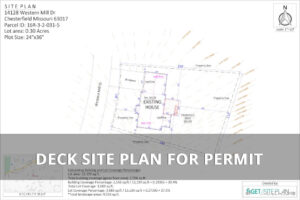
Deck Site Plan – Definition, Examples, Key Elements
Before a single board is cut or beam aligned, your deck begins with one essential drawing – the deck site plan. It’s the guiding layout that helps you organize your
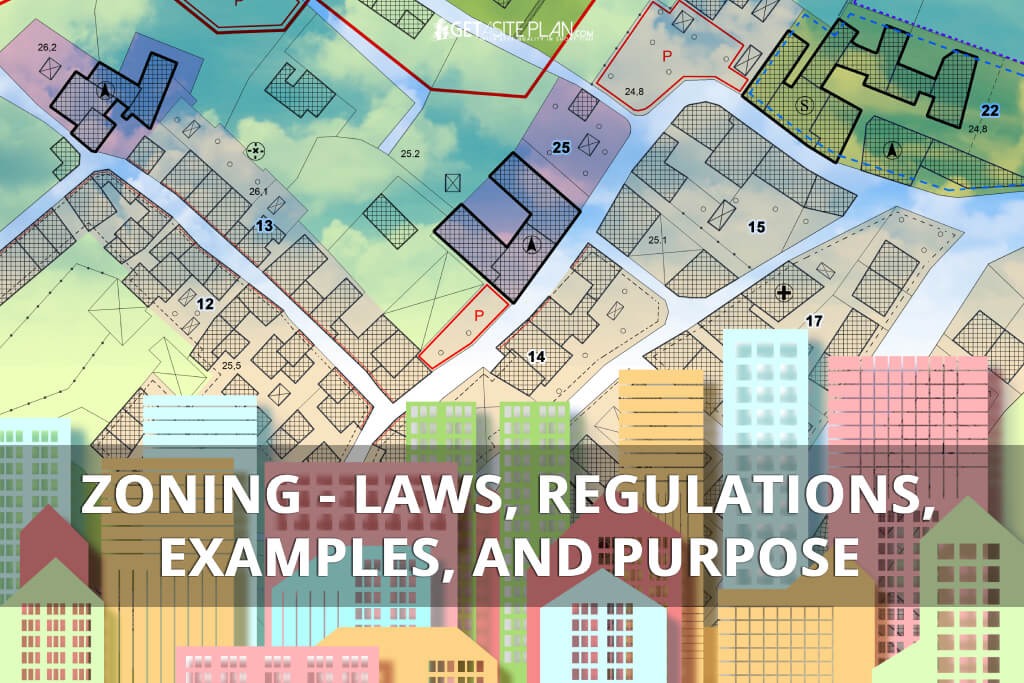

Contributing Writer | Architecture & Design Writer
Building urban centers and suburban neighborhoods wouldn’t be possible without zoning. Zoning laws and regulations shape our communities by commanding how land should be used and what we can build on it. These regulations influence our lives so it’s important to understand them and get insight into their purpose.
Whether you’re a curious entrepreneur or a homeowner planning your next project, exploring zoning laws is crucial for a successful project.
Join us as we explore zoning rules and regulations, and explain how they shape the future of our cities and their communities.
Table of Contents
Toggle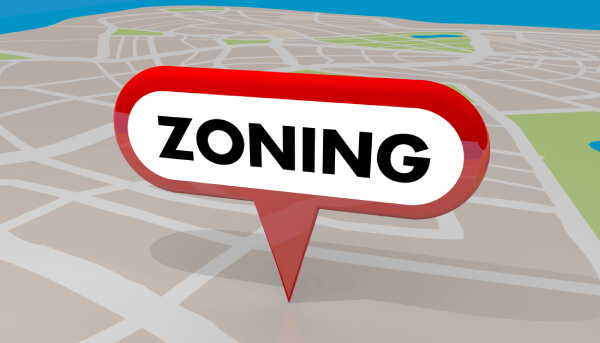
Zoning refers to laws and regulations defined by local municipalities and governments regarding the usage of land. Those regulations usually divide municipalities into different zones or districts and they define how properties can be used in certain areas.
The most common types of zoning are:
Each zoning type has its own rules and regulations that dictate the use of land in a certain area. They ensure that developments are sustainable, balanced, and helpful to the welfare of the community.
Zoning wouldn’t be able to function without the existence of clearly established laws and rules. Zoning laws play a major role in shaping urban communities so let’s find out more about them in the following text.
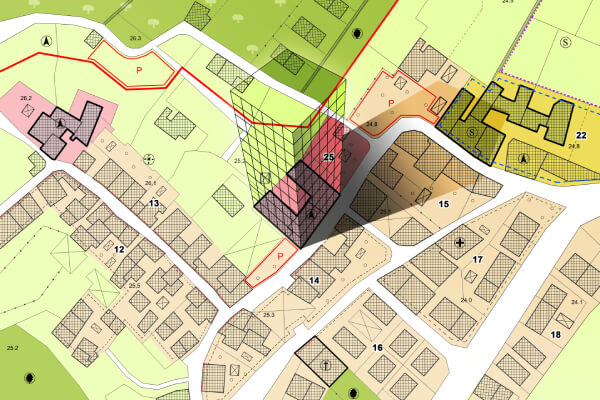
Zoning laws control land usage in specific geographic areas, usually at the country or municipal level. They separate land into different zones or districts, where each has its own set of regulations. Those laws dictate permissible land use, density limits, building heights, and aesthetic appearance of developments. The ultimate goal is to promote urban development and prevent incompatible use of land.
Since zoning laws are directly connected with zoning regulations, let’s find out more about them in the text below.
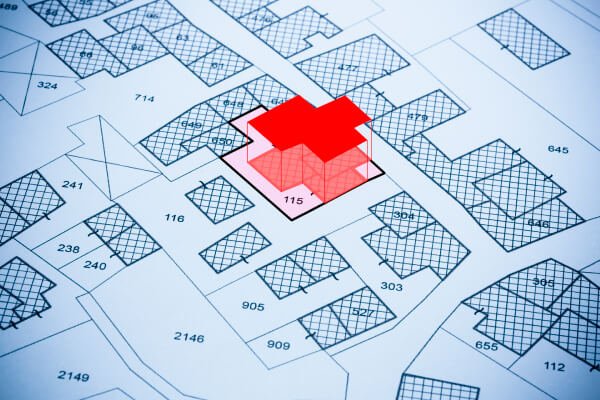
Zoning regulations are strictly connected with zoning laws, as they are detailed rules derived from zoning laws. These regulations define the exact requirements for different types of zoning, including building dimensions, floor area ratios, setbacks, permissible land use, and other criteria that property owners must adhere to.
Zoning regulations deal with parking requirements, landscaping, environmental protection, and signage. They help manage growth, maintain the desired characteristics of neighborhoods, and protect property values. These regulations ensure compatibility in land use and ensure consistency in following the strictly defined laws.
Zoning laws are the foundation for urban development projects, but zoning regulations set the guidelines to implement those laws.
Thanks to the existence of zoning laws, we can limit industrial or commercial land usage to prevent any type of business from being built in residential neighborhoods. Laws can be altered only if the future development can help and serve the community in any way.
One great example of zoning regulations is the limitation of fast-food restaurants that can exist near a residential area. This zoning regulation helps maintain the charm and characteristics of residential areas as it reduces potential noise, litter, and traffic congestion. This way, the residents can enjoy a quiet and pleasant living environment without the possible disturbance that can occur from having a large number of fast food outlets in the neighborhood.
Now, let’s explore the restrictions that come along with the process of zoning.
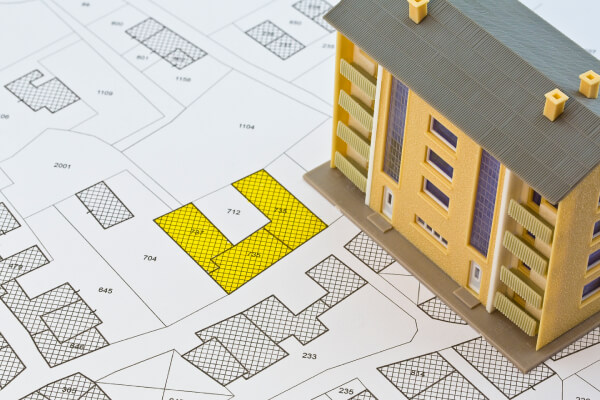
Zoning restrictions vary depending on the specific zone. Common restrictions include limits on lot coverage, height, setbacks from property lines, appearance, land use regulations, parking requirements, and density control. They depend on local zoning laws and the characteristics of a district.
Zoning restrictions also include architectural design standards such as materials, floor area ratio, environmental regulations, and historic preservation. These restrictions are essential tools for local authorities that help them control land use and development.
With zoning restrictions, governments maintain community aesthetics, protect natural resources, and ensure compliance between different land uses.
In the following text, let’s explore the overall purpose of zoning.

As we previously said, zoning plays a major role in shaping communities and helping urban growth. The main purpose of zoning is land use regulation within a county or municipality. Zoning ensures public safety, keeps the characteristics of communities, and prevents incompatible land use.
Overall, there are many purposes of zoning. It manages the economic and social development of urban areas, preserves green spaces, and makes resource planning easier, making sure that communities are developing properly.
Understanding the different purposes of zoning gives us insight into its role in urban development. Now, with this in mind, let’s explore the context of zoning when it comes to real estate.
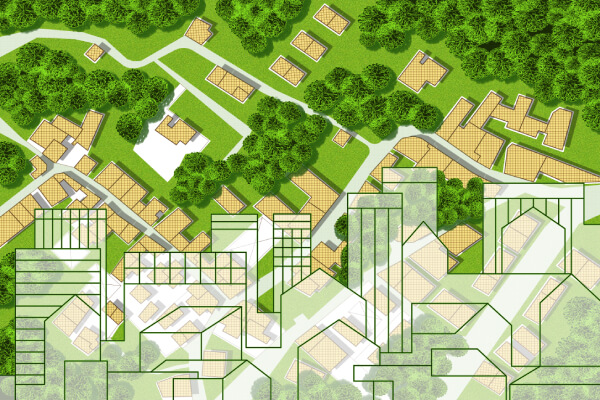
Zoning in real estate refers to the system of regulating land usage that states which areas and zones, can be used particularly for real estate development and activities. Those zones control what type of construction can be built and how can they be used.
Real estate zoning makes sure that property development complies with the planning objectives of a community and decreases the potential conflicts that can occur for different land uses. This way, investors and developers have clear expectations for a project, and with all the zoning guidelines, they can safely enter into the real estate market.
After seeing how zoning affects the real estate market, let’s see the specifics of zoning a property, so we can understand how, in general, the whole process of zoning works.

Property zoning is the process of categorizing individual parcels of land into districts or zones based on their assigned use and permissible activities. As we mentioned before, each zone comes with its own rules and regulations that instruct what can be built and how to use a certain piece of land.
For dividing larger parcels of land into smaller lots, you need to obtain a subdivision plan design that will ensure the layout complies with zoning laws and the community’s rules.
When buying a property, the first step is understanding its zoning. Property zoning will determine what you can legally do with your purchased land. For example, if your land has residential zoning, you can build a house or a duplex. Every zoning type has rules about usage, the appearance of the development, and building size.
By respecting property zoning, you avoid fines for rule violations. It’s important to always research local zoning rules as for making changes on the property, you will probably need permits.
In case you have a specific purpose for your land but find out that it’s not zoned properly, you can always apply for a conditional use permit. This permit is very flexible as it allows development and activities that contribute to the community while still respecting zoning laws.
Property zoning is a key step for navigating through the process of future land usage and developments. After exploring property zoning, let’s address the zoning of buildings and try to understand how those regulations influence construction projects.
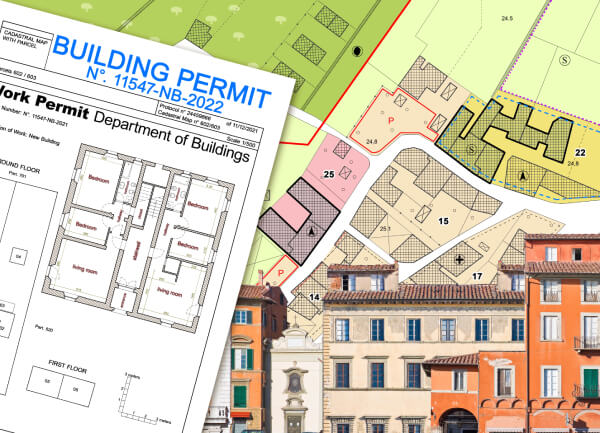
Building zoning is zoning that refers to guidelines that showcase how can a building be constructed and used in different zones. This type of zoning is derived from property zoning and in more detail, they show what type of buildings can be built. It determines a building’s size, setbacks from property lines, height, and architectural appeal.
Adhering to building zone requirements involves obtaining a building permit before the construction begins, and approval from the local municipality. A building permit is an important step in the project as it ensures that the project complies with laws and regulations.
Building zoning regulations make sure that new developments adhere to the rules of a specific zone. After seeing how important is to follow all zoning laws, let’s address some of the most common questions regarding zoning in general, to provide additional clarity on understanding the zoning process.
You need to check your local zoning department. They will give all the necessary information regarding the land and its use.
Not respecting zoning laws can cause legal issues, where you can get an order to stop the project or activity you’re doing. There is a high risk of getting penalties, fines, and in the worst cases, criminal charges. To avoid this, always consult a legal professional.
The answer is yes, you can own the land, but you still need to respect zoning laws that can prevent you from building, if the construction isn’t in compliance with the established regulations.
Zoning is controlled by the county or city level. The zoning in your area depends on where you live. In some cases, zoning can be controlled by a land use office and by a zoning office.
Zoning laws are essential for urban development and economic growth as they help in creating sustainable communities and improving life quality. By regulating land use, we shape our towns and cities and get insight into our environment.
Zoning principles ensure that neighborhoods keep their unique characters while adapting to modern needs. They help in supporting environmental sustainability and promoting economic vitality. Understanding zoning and its laws is crucial for building a better future.
One of the key aspects of the zoning process is the zoning permit, which ensures that any new developments comply with established zoning laws. When applying for any type of permit, don’t forget to obtain a site plan for permits which is a detailed architectural drawing that showcases the layout of a proposed development.
For help in obtaining a site plan, feel free to contact us. Our expert team will assist you throughout the process and ensure that all regulatory standards are met. We’re dedicated to supporting your goals and making the permit approval process fast and easy!
Learn more about our contributor:

Contributing Writer | Architecture & Design Writer
During my career, I’ve written articles on interior design, home remodeling, and renovation with an emphasis on money-saving tips and DIY ideas. It’s been a rewarding journey and I am thrilled to continue helping others bring their architectural visions to life.

Before a single board is cut or beam aligned, your deck begins with one essential drawing – the deck site plan. It’s the guiding layout that helps you organize your
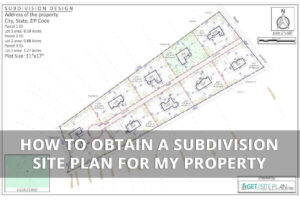
If you’re a property owner planning to build, make improvements, or divide your land, one of the first things you’ll need is a subdivision site plan. However, navigating the process

A porch is one of the most versatile and inviting parts of a home. It’s where curb appeal meets comfort, providing a place to welcome guests, relax with family, or